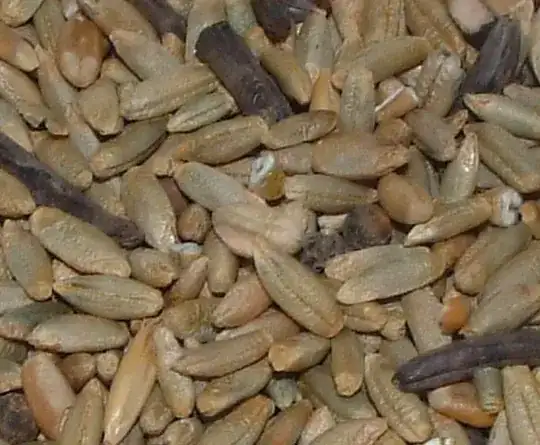In Poland any grains need to be inspected when delivered from farmer to the company that buys and stores it. And then it is inspected few times more before it reaches fina consumer. If you bought it in a food store, and if your country has similar legislation (many countries do), it should be safe.
I heard, but never was able to confirm or debunk, that sometimes food-grade grains are treated with chemicals that prevent germination and spoiling. Of course it might depend on the region you are in, but if that's the case for you, you will not be able to malt it, obviously. But you will see your grain not sprouting, so no real harm in trying.
Now, ergot. Chemicals it produces can cause hallucinations, muscle cramps and even necrosis of hands and legs and temperature does not remove these toxins. All effects mentioned was observed in people who ate it in baked products. Of course effects depends on dosage, but if you have any doubts about ergot and can't get your grain inspected, throw it away. For small batches of grain, ergot should be visible: 
Sadly, it's less visible when grain is wet, and practically impossible to see in flour.
I believe in "better safe than sorry". Other fungi can leave toxins that are bad for you and can't be removed by baking, too. Not all of it will be as visible as ergot, and luckily most of them aren't as bad for you, either. Still I prefer to throw away some grain and buy safe one later than to risk poisoning.
For the equipment, remember floor malting. No need to overthink it. If grain was safe, just be careful to keep things clean.
